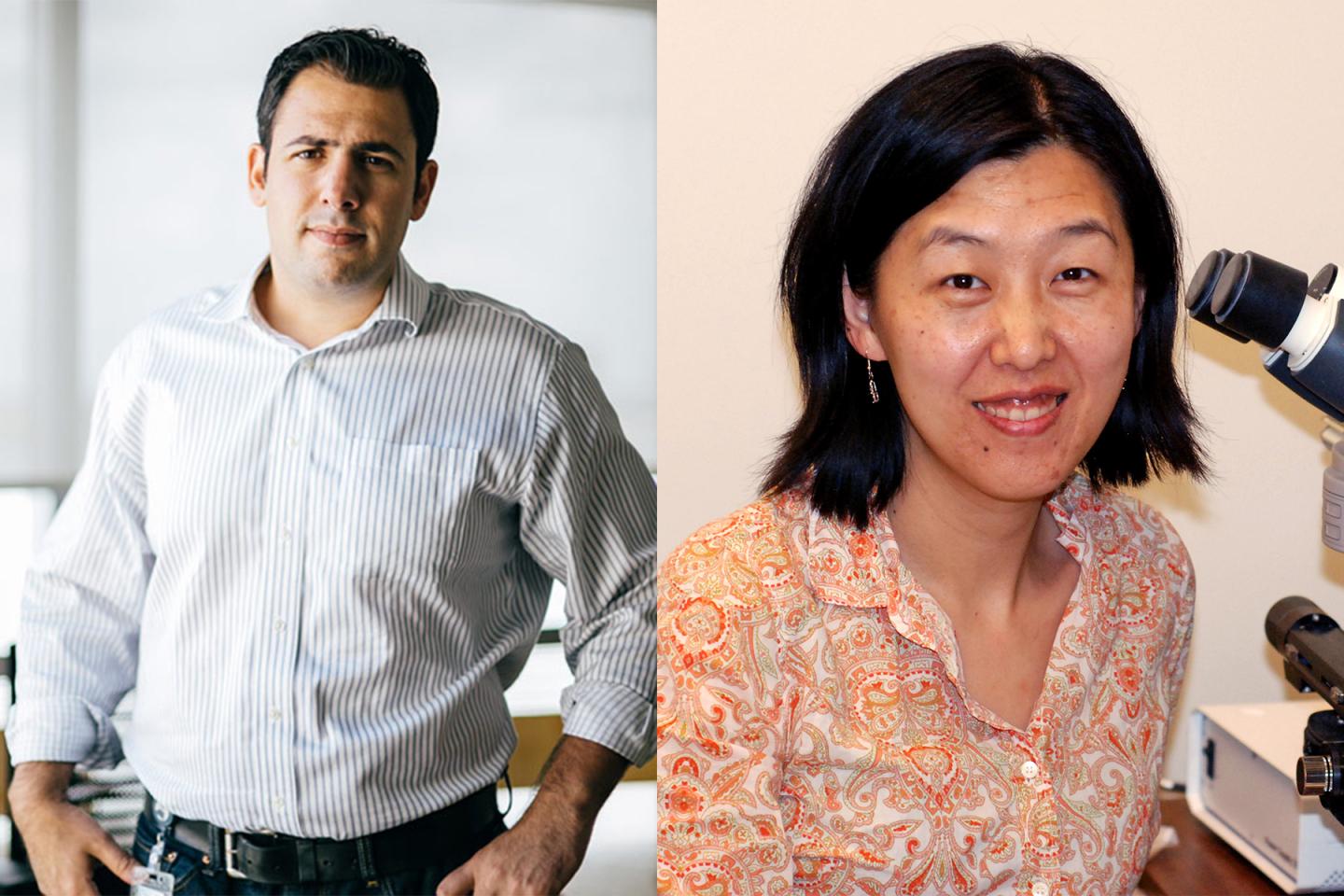The fellowships will foster collaboration on ground breaking neuroscience research

Credit: Max Planck Florida Institute for Neuroscience
The Max Planck Florida Institute for Neuroscience announces the appointment of two Max Planck Society Fellows, Drs. Michael Halassa and Yi Zuo. The fellowship program is supported by Germany’s Max Planck Society to promote cooperation between outstanding university professors and Max Planck Society researchers for a five-year period. The fellowship program is a longstanding hallmark of Max Planck Society collaborations, with more than 100 fellows being placed into collaborations with Max Planck Institutes around the world since the program began in 2005. Dr. Hallassa and Dr. Zuo are the first researchers to be awarded a Max Planck Society Fellowship at the Max Planck Florida Institute for Neuroscience, which was established in 2010 as the first and only Max Planck Institute in North America.
Michael Halassa is an associate investigator at the McGovern Institute for Brain Research at MIT and an assistant professor in the department of brain and cognitive sciences. During his fellowship, he will focus on research that provides new insights into the functional organization of the neural circuits underlying higher cognitive function that will have a significant impact on the field, and may be relevant for understanding conditions such as autism and attention deficit disorder.
Dr. Halassa well known for his pioneering work on the neural circuits that give rise to cognitive processes like attention and executive function. His work focuses on understanding the role of the thalamus in cognition. He is the recipient of numerous awards and prizes, including the 2017 Vilcek Prize for Creative Promise in the Biomedical Sciences and the 2015 Daniel X. Freedman Prize for Exception Research in Basic Brain & Behavioral Science. He was also awarded the 2017 Takeda/New York Academy of Science Innovator Award, was recognized as the 2017 NYU Langone Medical Center Next Generation Star and was named the 2015 Allen Institute Next Generation Leader.
Dr. Yi Zuo is a professor in the Department of Molecular, Cell and Developmental Biology at the University of California, Santa Cruz. She will work with MPFI researchers to develop and apply microscopy techniques to study how synaptic plasticity and brain circuits are affected in mouse models of mental illnesses and stress. The projects addressed through this fellowship are expected to provide new insights into the molecular and cellular mechanisms underlying synaptic reorganization during learning and in neuropsychiatric disorders.
Dr. Zuo is a distinguished neuroscientist and one of the pioneers of chronic imaging of synapses in live animals. She is internationally recognized for her work on synaptic remodeling in development and learning. Over the past three years, Dr. Zuo has worked closely with Max Planck Florida Institute for Neuroscience in developing and organizing the advanced course “Neuro-Imaging Techniques” together with Dr. Yasuda. In addition to teaching the course, Dr. Zuo has initiated a collaboration with Dr. Fitzpatrick and Dr. Yasuda to develop new technologies for correlative light- and electron microscopy (CLEM). Dr. Zuo is the recipient of numerous awards and prizes, including the 2007 award from the Ellison Medical Foundation and the American Federation for Aging Research (AFAR). She was also a 2015 National Award finalist for the Blavatnik Awards for Young Scientists.
###
The Max Planck Florida Institute for Neuroscience (MPFI), a not-for-profit research organization, is part of the world-renowned Max Planck Society, Germany’s most successful research organization with over 80 institutes worldwide. Since its establishment in 1948, 18 Nobel laureates have emerged from the ranks of its scientists. As its first U.S. institution, MPFI brings together exceptional neuroscientists from around the world to answer fundamental questions about brain development and function and to develop new technologies that make groundbreaking scientific discoveries possible. Their research is shared publicly with scholars, universities and other organizations around the globe, providing the necessary foundation of knowledge to develop treatments and cures for brain disorders such as autism, schizophrenia, Parkinson’s disease and Alzheimer’s disease.
For more information, visit http://www.
Media Contact
Katie Edwards
[email protected]
Original Source
https:/




